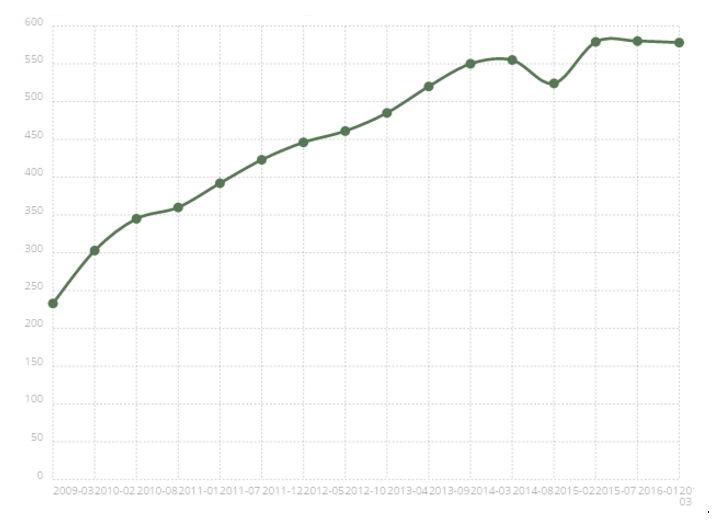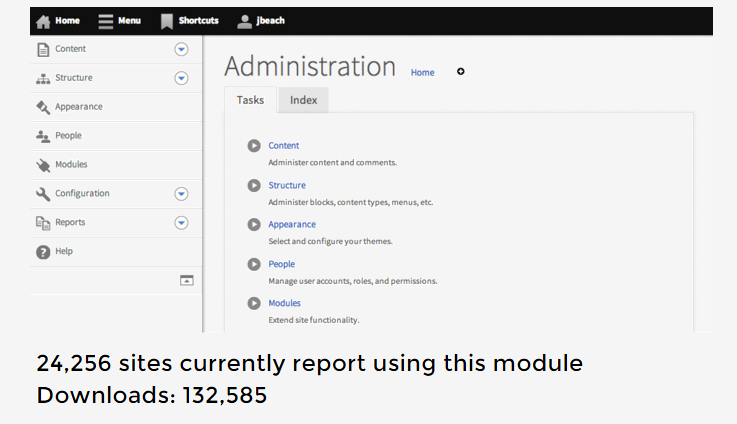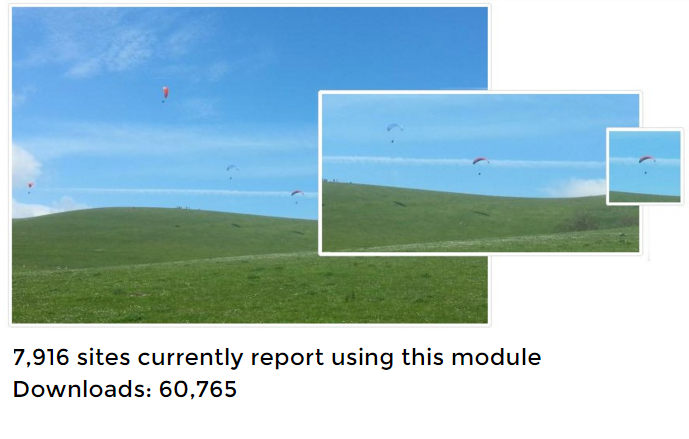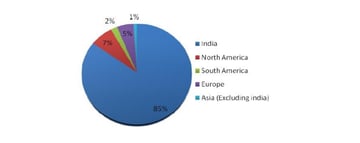We have, to this date, about 579,619 websites in the world running on Drupal. When we talk of the top 10k websites, 578 websites are on Drupal and you can see how this growth has been more than 200% from 2009 to 2016.

Individuals and organizations in every sector use Drupal for everything from simple blogs and microsites, to complex intranets and private internal applications, to some of the largest sites on the web.
But the key to running a successful Drupal website is deeply penetrating the core of Drupal and understanding which modules empower your website in the most astounding ways possible. Interestingly, the best modules are the ones which are often overlooked, so here are a few modules which you are probably missing out on (which you shouldn’t):
Paragraph Module

Paragraphs is the new way of content creation. It allows you to make things cleaner so that you can give more editing power to your end-users.
Paragraphs enables creation of visually interesting content. You can choose from a variety of block types which support text, images and iframe content, reorder them and control the look quickly, switching alignment left or right. It makes blogs look more lively and gives creators the control they crave.
Coffee Module

The Coffee module helps you to navigate through the Drupal admin faster, inspired by Mac apps Alfred and Spotlight.
Ever wanted to navigate in the admin with your keyboard? Coffee is the solution. Just type alt+d to start Coffee and type ahead for the page you want to visit.
Navbar Module

A very simple mobile friendly navigation toolbar introduced to solve mobile editing problems with the Drupal 7 shipped toolbar, that is not very friendly to small screen sizes.
The Navbar module displays a bar containing top-level administrative components across the top of the screen. Below that, the Navbar module has a drawer section where it displays links provided by other modules, such as the core Shortcut module. The drawer can be hidden/shown by clicking on its corresponding tab.
In addition to providing responsive access, the vertical orientation of Navbar provides deep-level access into administrative functions without refreshing the page.
Imagefield Focus Module

This module adds another option to the image styles on a content type field. With this module you are able to specify a focus and crop area of your image. Once you have selected either or both of those areas the module then resizes and focuses on the certain area you specified. As you will see in the video, this module can be used when displaying a staff page showing only head shots and then loading to a full page where the entire image is shown all with the same image.
Publication Date Module

The Publication Date module adds a "Published on" date for each node, containing the date when it was first published.
Without this, the only dates available for nodes are their created date and changed date, but these are often insufficient to meet the needs of publishing workflows. Sorting nodes by their created date doesn't account for content which is held in draft form for a time while being readied for publication. Sorting nodes by their changed date fails to account for content needing minor corrections after being published.
Above were just a few modules I could pick which would be tremendously useful for a Drupal driven content website. If you are unaware of any of these modules, then waste not a second more and get these modules working for you.
I hope you enjoyed the post. Subscribe to the blog for more of our tech musings.


